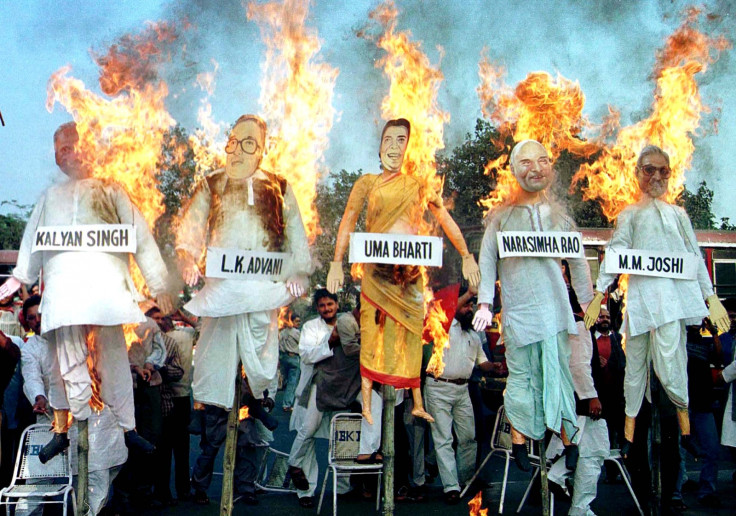Babri Masjid: The politico-religious wedge between Indian Muslims and Hindus
India's top court revives criminal conspiracy charges against senior leaders of the ruling Bharatiya Janata Party.

For decades, the contentious issue of Babri Masjid has dominated political discussions and media coverage in India. The dispute over a plot of land in the city of Ayodhya in the north Indian state of Uttar Pradesh is at the heart of the Hindu-Muslim polarisation in the country.
The issue is back in the news as the Supreme Court of India on Wednesday (19 April) allowed the Central Board of Investigation (CBI), India's foremost investigative agency's appeal in Babri demolition case and restored criminal conspiracy charges against prominent right-wing leaders - Lal Krishna Advani, Murali Manohar Joshi, Uma Bharti and 10 others.
The apex court overturned a decade-old verdict delivered by two lower courts.
The top court also ordered the lower courts to wrap up the case within two years conducting a day-to-day trial.
Advani, the 89-year-old veteran of the ruling Bharatiya Janata Party (BJP) who shares a frosty relationship with Prime Minister Narendra Modi, and other senior figures are accused by CBI of making inflammatory remarks in the run-up to the mosque's demolition . However, the leaders deny the charges.
What is the Babri Masjid issue?
The Babri Masjid, a mosque, was built in the ancient city of Ayodhya in 1528 under the orders of Muslim invader Babur. Hindus consider Ayodhya as the birthplace of Lord Ram. They say a then-existing Ram temple was demolished or modified to create the mosque.
Re-erecting the temple in at the site remains a cornerstone of BJP's ideology since the party's inception.
The Babri Masjid was demolished by a gathering of more than 200,000 right-wing marchers in the year 1992, following which India saw widespread riots across the country. More than 2,000 lives were lost during the riots.
In 2010 the Allahabad High Court had said that there should be a partition of the site in Ayodhya and distributed among the concerned parties.
However, the Supreme Court on 21 March asked for an amicable, out-of-court settlement in the ongoing dispute. It said that the settlement was a better course of action instead of a judicial pronouncements.
Political ramifications
On the political front, it is still unclear how the BJP would be affected by the latest verdict as the party had only recently secured an overwhelming victory in the UP, India's most populous state.
While one of the accused, Bharati, is a sitting federal minister another key accused Kalyan Singh, enjoys constitutional immunity as he is governor of Rajasthan. Singh was the chief minister of Uttar Pradesh when the mosque was demolished.
Demands have emerged for the two to step down as a moral obligation to face judicial scrutiny but those are unlikely to be heeded.
"We can't say anything, will first study the court order. Why should leaders like Uma Bharti resign from Union Minister position, these all are baseless charges," BJP spokesman GVL Narasimha Rao told a news channel.
Meanwhile, a demoralised and fractured opposition has consciously chosen not to step up their attacks against the BJP considering the sensitive nature of the case.
© Copyright IBTimes 2024. All rights reserved.






